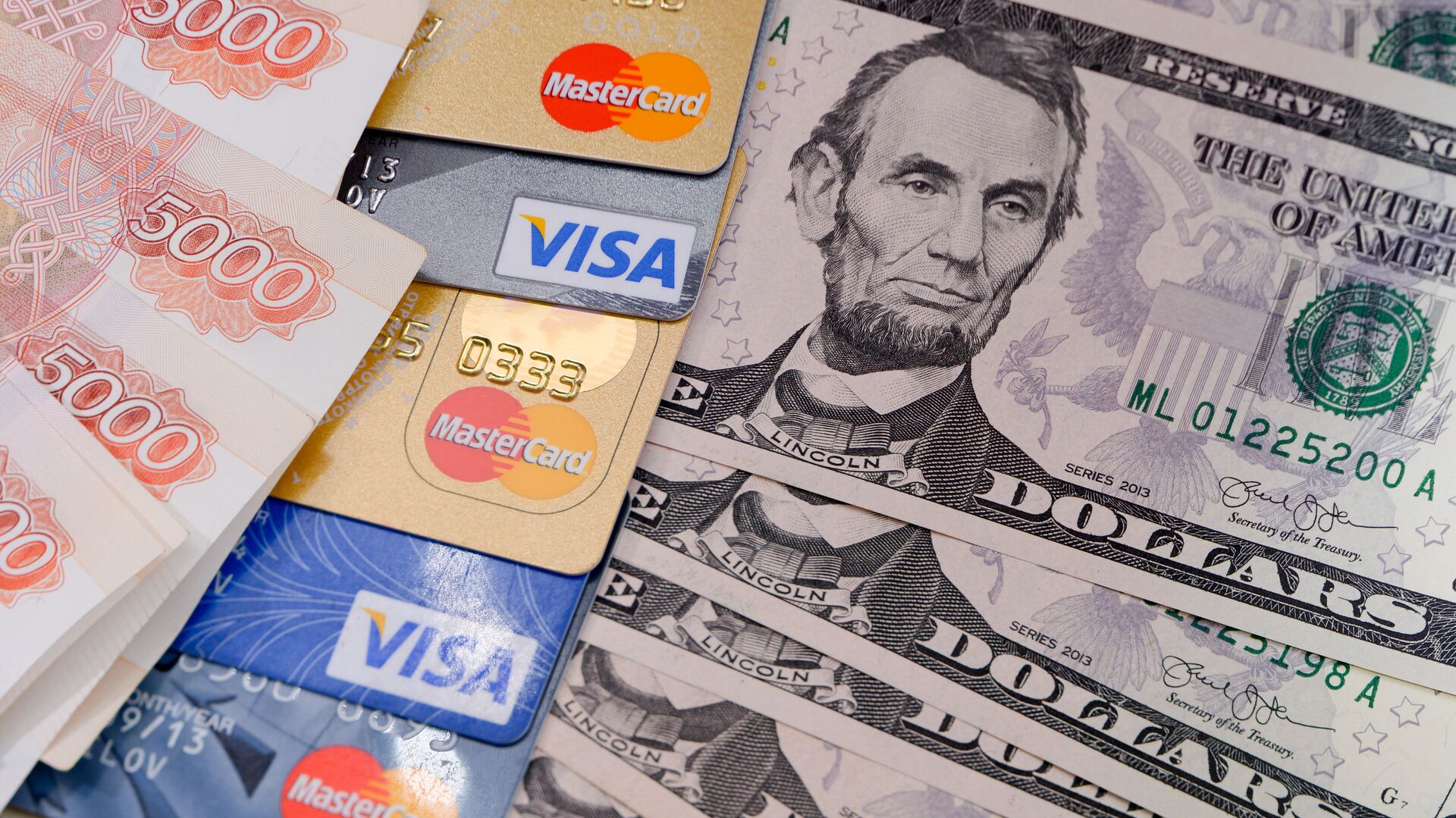https://sputnikglobe.com/20230204/us-credit-card-debt-reaches-185-hits-record-9306-billion--1106963792.html
US Credit Card Debt Reaches 18.5%, Hits Record $930.6 Billion
US Credit Card Debt Reaches 18.5%, Hits Record $930.6 Billion
Sputnik International
US credit card debt has hit a record $930.6 billion in the fourth quarter of 2022 according to the latest credit report from TransUnion: that’s a 18.5% increase in total US credit card debt since a year prior.
2023-02-04T00:44+0000
2023-02-04T00:44+0000
2023-02-04T00:37+0000
economy
us economy
us economy
credit
credit cards
debt
debt
https://cdn1.img.sputnikglobe.com/img/105628/61/1056286140_0:160:3077:1890_1920x0_80_0_0_bfa0a604e16e43964272357a258b6052.jpg
US credit card debt has hit a record $930.6 billion in the fourth quarter of 2022 according to the latest credit report from TransUnion: that’s a 18.5% increase in total US credit card debt since a year prior.“Whether it’s shopping for a new car or buying eggs in the grocery store, consumers continue to be impacted in ways big and small by both high inflation and the interest rate hikes implemented by the Federal Reserve,” said Michele Raneri, vice president of US research and consulting at TransUnion.“Credit card interest rates are already as high as they’ve been in decades,” said Matt Schulz, chief credit analyst at LendingTree. “While the [Federal Reserve] is taking its foot off the gas a bit when it comes to raising rates, credit card APRs almost certainly will keep climbing for at least the next few months, so it is important that cardholders continue to focus on knocking down their debt.”An additional 202 million new credit accounts were opened in the fourth fiscal quarter. Many of these new credit cards belong to Generation Z (adults between the ages of 18 and 25) who contributed to the total number of credit cards which hit a record total of 518.4 million.Many of these new credit card owners are subprime borrowers (those with a credit score of 600 or below and so delinquencies (a bill that’s 60 days or more overdue) rose as lenders expanded access to these inexperienced credit users.The unemployment rate in the US is currently at a 54-year low.
Sputnik International
feedback@sputniknews.com
+74956456601
MIA „Rossiya Segodnya“
2023
News
en_EN
Sputnik International
feedback@sputniknews.com
+74956456601
MIA „Rossiya Segodnya“
Sputnik International
feedback@sputniknews.com
+74956456601
MIA „Rossiya Segodnya“
us credit card debt,
US Credit Card Debt Reaches 18.5%, Hits Record $930.6 Billion
Inflation in combination with rising interest rates are leading more Americans to spend borrowed money on necessities like food and rent. This week, the Federal Reserve increased interest by a quarter of a point; however, the recent hike is more modest than previous raises, and marks the eighth hike since March of 2022.
US credit card debt has hit a record
$930.6 billion in the fourth quarter of 2022 according to the latest credit report from TransUnion: that’s a 18.5% increase in total US credit card debt since a year prior.
“Whether it’s shopping for a new car or buying eggs in the grocery store, consumers continue to be impacted in ways big and small by both high inflation and the interest rate hikes implemented by the Federal Reserve,” said Michele Raneri, vice president of US research and consulting at TransUnion.
The annual
credit card percentage rates are already near 20% on average, which is an increase from 16.3% a year ago. The average credit balance is also $5,474, and if one were to make minimum payments towards that amount it would take almost 17 years to pay off one’s debt,
and would cost about $8,000 in interest, according to Bankrate.
“Credit card interest rates are already as high as they’ve been in decades,” said Matt Schulz, chief credit analyst at LendingTree. “While the [Federal Reserve] is taking its foot off the gas a bit when it comes to raising rates, credit card APRs almost certainly will keep climbing for at least the next few months, so it is important that cardholders continue to focus on knocking down their debt.”
An additional 202 million new credit accounts were opened in the fourth fiscal quarter. Many of these new credit cards belong to Generation Z (adults between the ages of 18 and 25) who contributed to the total number of credit cards which hit a record total of 518.4 million.
Many of these new credit card owners are subprime borrowers (those with a credit score of 600 or below and so delinquencies (a bill that’s 60 days or more overdue) rose as lenders expanded access to these inexperienced credit users.
“The increase in delinquencies is something to watch,” Raneri said. “If unemployment goes up, and we see a spike in delinquencies, then that indicates a longer-term problem.”
The unemployment rate in the US is currently at a
54-year low.


